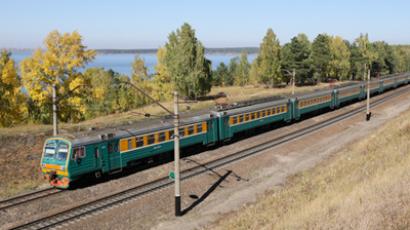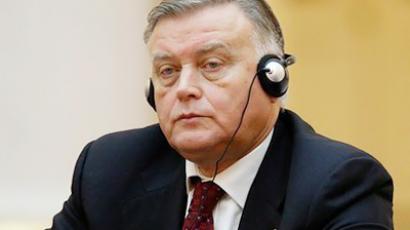Russian Railways gathering speed
Russia is so vast it can take a week to travel from East to West by train, but if Russian Railways have their way it will become much much quicker.
The first step will be a new high-speed link between Moscow and Ekaterinburg in the Central Urals. The 1600km journey currently takes at least 25 hours by train, by 2018 it could be down to just seven. There are also plans to link Moscow with Russia's second city St Petersburg according to boss of the Russian Railways high speed subsiduary Denis Muratov, “We are planning to built 659 km high-speed rail from Moscow to St. Petersburg with the capacity to speed up to 400 km/h.”Russia already has a high-speed train called the Sapsan which was introduced in 2009. It connects Moscow to St. Petersburg at up to 250 km/h. Both high speed lines are expected to cost about 2.2 trillion roubles. Two thirds will be invested in the high-speed Moscow-Ekaterinburg link and the rest on the route to St. Petersburg. Denis Muratov explains the project will benefit the Russian economy. It will save travellers time, create new jobs, bring dividends to Russian companies that will take part in the construction. The high-speed rail lines are planned to pay back in 30 years time and generate 3.8 trillion roubles of the socio-economic effect. The Moscow – Ekaterinburg line, for instance, will connect nine federal districts and have the potential to contribute to regional development and boost economic activityRussia does not have the resources or experience to build the project on its own, so it will be looking for foreign partners. Tenders will go out in 2012, and there's already been interest from Europe and Asia.














